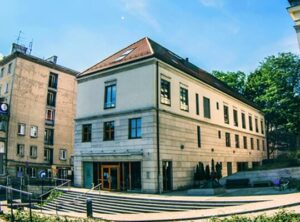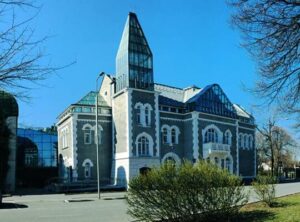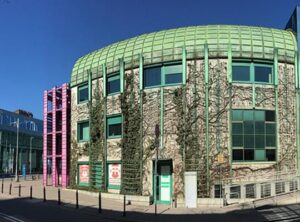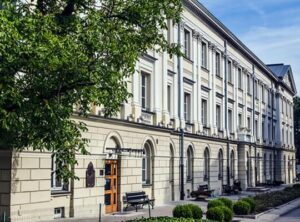Faculty of Law and Administration
University of Warsaw
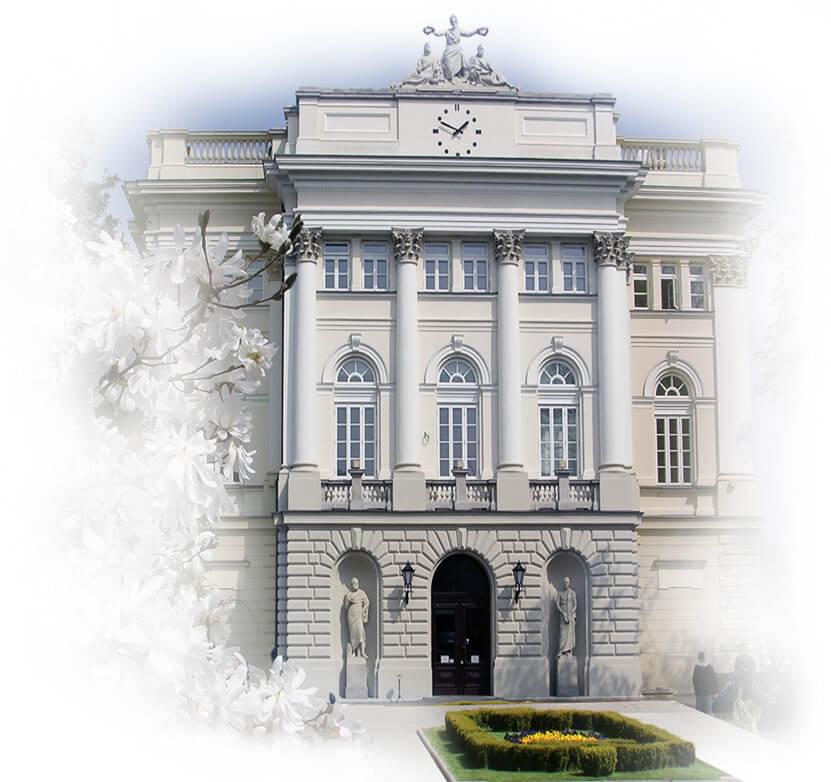
WPiA
Do you want to study at a faculty that delivers top-tier education and a strong launchpad for your future, while offering ample ways to develop your interests?
Discover what the Faculty of Law and Administration at the University of Warsaw has to offer and find your place to study.
History of the Faculty
Beginings
The traditions of the Faculty of Law and Administration, the oldest faculty of the University of Warsaw, date back to the 18th century and the curriculum of the Corps of Cadets. Plans to establish a university that would also train lawyers were put forward at the time of the First Partition, when the Commission of National Education issued a number of professorial appointments. However, financial and spatial difficulties prevented the realization of this idea.
The concept returned during the period when Poland lost its statehood. In 1808, the School of Law of the Duchy of Warsaw was established—mainly to serve the newly created judiciary and administration. This date is regarded as the beginning of the Faculty’s history. On October 1, 1808, Feliks Łubieński, then Minister of Justice and patron of the school’s organization, emphasized its role as a center for educating young people. In 1811, through a merger with the School of Administrative Sciences, a two-faculty institution was created: the School of Law and Administration. Its governance was entrusted to a Supervisory Council, which included, among others, Stanisław Staszic and Samuel Bogumił Linde. Studies lasted three years (or four in the case of combined programs at both faculties). In 1814, the office of Dean was introduced, and the distinguished legal historian Jan Wincenty Bandtkie was appointed. The School continued to operate without interruption even during the war with Russia. Transformed by the 1816 founding diploma into the Faculty of Law and Administration, it became part of the Royal University of Warsaw. The University formally opened on May 14, 1818. Among the Faculty’s professors were the eminent economist and penologist Fryderyk Skarbek, Wacław Aleksander Maciejowski, who taught Roman law and historical-legal subjects, and finally, the Faculty’s own alumnus and the youngest of them, the criminal law scholar Romuald Hube. The Faculty actively engaged in Warsaw’s scholarly life, for instance by publishing the journal Themis Polska (1828–1831). During its 14 years of existence, the Faculty graduated 1,880 students, including 757 who received master’s degrees.
Main School
During the reforms of the 1860s, the Russian authorities agreed to establish the Main School in 1862. The largest of its four faculties became the Faculty of Law and Administration.
Its structure did not divide studies into legal and administrative tracks; only at the final master’s examinations could students choose one of the available fields. Among the professors at that time were, among others: criminal law scholars Stanisław Budziński and Walenty Miklaszewski, Roman law scholar Teodor Dydyński, civil law scholar Władysław Holewiński, and administrative law scholar Antoni Okolski. Over the course of seven years, the Faculty of Law and Administration awarded 318 master’s degrees (out of a total of 1,314 enrolled students).
University of Warsaw
At the turn of 1869/1870, the purely Russian Imperial University of Warsaw replaced the Main School. Despite the failed attempts to establish a Polish university in 1905–1907, work on this project was resumed already during the wartime in 1914. Professors such as Miklaszewski and Holewiński participated in developing the concept of legal studies. On November 15, 1915, under the authority of the German occupation, the University of Warsaw was opened. Its first faculty (until the Faculty of Theology was established) was the Faculty of Law and State Sciences—renamed in 1917/18 the Faculty of Law and Political Sciences.
In 1918, steps were taken to fully stabilize the University. The scope and procedures for examinations were defined for the Faculty of Law. In January 1919, the Head of State signed a decree appointing the first body of professors of the University of Warsaw.
The number of students in the interwar period was very large (admissions ranged from 2,000 to 3,000), with about 30% of those enrolled in the first year completing their studies. In 1933, the Faculty limited the number of new admissions to 1,000 by introducing a competitive entrance based on the matura exam.
The Faculty operated under very difficult spatial conditions. Only in 1935/36 was the newly constructed Faculty of Law building handed over to it, including the Auditorium Maximum.
World War II
In September 1939, the Faculty of Law’s seminary building was destroyed by fire. The German army occupied the Auditorium Maximum as well as the surviving premises of the Civil Law Seminary. As early as October, in response to Dean Rybarski’s inquiry, the heads of institutes declared that classes could resume once substitute premises were secured. At the end of October, however, the Germans banned the activities of higher education institutions, and organizing underground teaching required new methods.
From the autumn of 1940, classes for senior students were conducted under Dean Rybarski’s supervision. For those wishing to begin studies, courses were organized together with professors expelled from Poznań as part of the University of the Western Lands, where from January 1, 1941, Prof. Rafacz served as Dean of the Faculty of Law. When Rybarski was arrested in May 1941, teaching was temporarily suspended, but by July 1941 it resumed under the guidance of Prof. Rafacz as Dean of the UW Faculty of Law. The law courses of the University of the Western Lands were gradually transferred to the University of Warsaw, so that by 1943 the Faculty of Law was fully functioning within the University of Warsaw—and the number of students steadily increased. It is estimated that about 1,000 students studied during the occupation (a list based on passed exams includes 600 names).
Small groups were formed in various locations across the city, and professors repeated lectures in each subject several times. Every subject concluded with an examination; organizing all yearly exams on a single day, as before the war, was impossible under occupation. The Faculty of Law was the only faculty whose Faculty Council met regularly, and alongside teaching, professors also pursued scholarly work, preparing textbooks. The Warsaw Uprising interrupted instruction, and in August 1944 Dean Rafacz was executed by the Germans.
After 1945
In July 1945, the Faculty of Law resumed classes, continuing the previous curriculum (though examinations for each subject were still taken separately). The number of professors steadily increased. By 1950, all chairs were fully staffed, and new ones were created. From 1968 onward, all chairs were reorganized as institutes’ departments, and since then the Faculty has operated within the structure of six Institutes.
With regard to the organization of studies after World War II, changes began to be introduced in 1948. From that year, three study tracks were offered for third-year students: civil law, criminology, and administration. In 1949, a two-cycle system was introduced—the first cycle lasted three years, had a vocational character, and entitled graduates to pursue master’s studies in a chosen specialization (with limited places available). This two-cycle structure was abolished in 1951/52, and four-year studies were reinstated. Since the 1980s, studies have lasted five years and concluded with the defense of a master’s thesis.
From 1992, the Faculty undertook the task of increasing student admissions. As the only one in Poland, it introduced both full-time and so-called evening studies under a unified program, removing rigid timetabling, introducing lectures, and replacing traditional exercises with “consultations” in groups of varying size (depending on room availability), open to participants from both study modes.
The last 30 years have been a period of continuous development for the Faculty. During this time, new buildings have been acquired, major renovations of existing facilities have been carried out, the academic staff has grown significantly, and the number of students has increased. In the 2016/2017 academic year, a comprehensive reform of the Law program was implemented, introducing innovative solutions on a nationwide scale, including so-called specialization blocks. The method of teaching procedures was also revised.
The full history of the Faculty is available on the “About Us” page.
Opportunities for Learning

over 200
research workers
of which over 100 are professors and habilitated doctors.
Classes conducted by outstanding specialists and law practitioners:




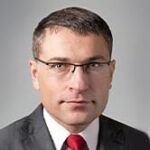

The richest law library in Poland –
over 10,000 specialist books, access
to online collections and foreign databases.
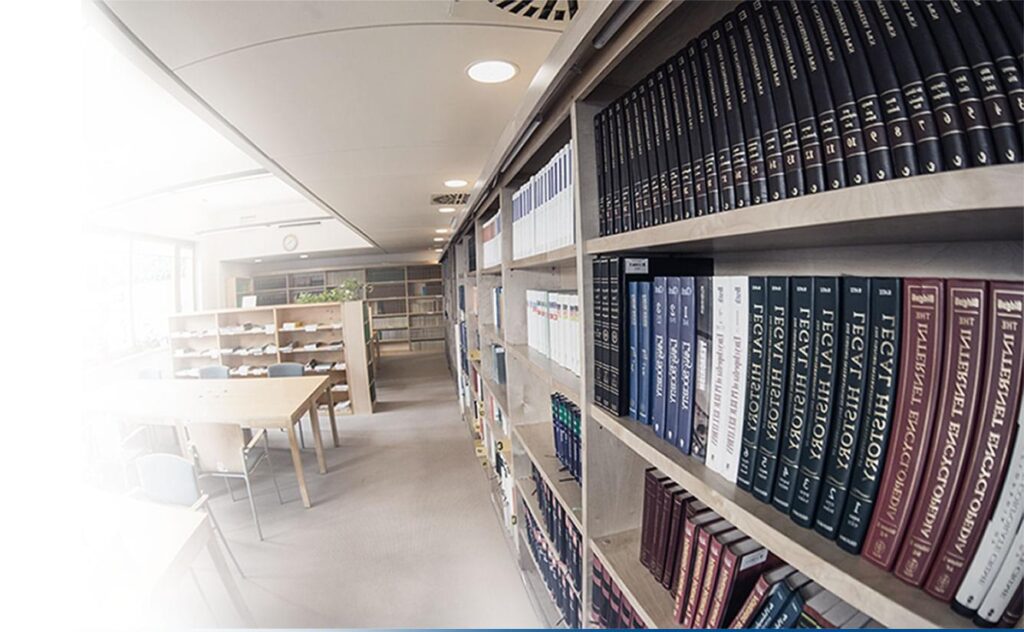

7 schools
of foreign law
American law
Taught by professors from Emory School of Law and GSU College of Law
British Law
Taught by lecturers from Juris Angliae Scientia, Cambridge, and other British universities
French Law
Taught by French professors and lawyers from Université de Poitiers
Spanish Law
Taught by scholars from Universidad de Castilla-La Mancha
German Law
Taught by German professors and practitioners from the University of Bonn
Italian Law
Taught by professors from Università di Catania and Università Cattolica del Sacro Cuore in Milan
Chinese Law
Taught by Chinese professors and practitioners from Beijing University
A Proven Choice
Top positions 

Top positions in the most prestigious rankings – both in terms of career opportunities after graduation and success rates in professional admission exams. Outstanding results achieved by both full-time and part-time students!
4 Nobel Prize Winners
Among alumni and former students of the Faculty
Henryk Sienkiewicz, Czesław Miłosz, Leonid Hurwicz, Menachem Begin
1st place
2017 Ranking of Academic Universities
2nd place
Law 2017
2nd place
2017 Ranking of Law Faculties by Dziennik Gazeta Prawna
Group 201-205
International QS Ranking 2018 (the Faculty of Law and Administration of the University of Warsaw was the highest-ranked Polish law faculty)
4500 students
are learning at our Faculty
Among the graduates of our Faculty are individuals who hold high-ranking positions in state institutions.
An Investment in the Future
Studying at the University of Warsaw Faculty of Law and Administration, while developing your own interests, ensures excellent career opportunities after graduation.
”A strong start on the job market – Warsaw is home to the most important state institutions, the largest law firms, and major national and international corporations. It’s up to you to decide which path you will follow!”
“A wide range of career and development opportunities: Legal apprenticeships, Business, Corporations, Government and local administration, Diplomacy, Politics, NGOs, Media, Doctoral studies.
Openness to the World
Erasmus+ and Erasmus Internships Opportunity to take part in international studies or professional placements abroad. Erasmus+ is an exchange programme for students and staff between universities in the European Union and four members of the European Economic Area: Iceland, Norway, Liechtenstein, and Switzerland.
Study or work abroad with Erasmus+, available to students of the Faculty of Law and Administration at the University of Warsaw.

More Than Just Learning
Studying at the University of Warsaw Faculty of Law and Administration, while developing your own interests, ensures excellent career opportunities after graduation.
”Every year, a now-legendary integration trip is organized for new students of the Faculty of Law and Administration at the University of Warsaw. One of the most active Student Governments in Poland hosts and co-hosts dozens of events, parties, and initiatives each year. Join the students of WPiA UW – and join the Student Government!”
“Amazing people with whom you can build friendships that last a lifetime – or at least throughout your studies.”
A comfortable place to study
The Faculty of Law and Administration currently occupies four modern buildings located on and around the unique Central Campus of the University of Warsaw – the only one of its kind in the country. All buildings, facilities, and lecture halls have been fully renovated, equipped with modern electronic devices, and adapted to the needs of people with disabilities. Most classes are held on Krakowskie Przedmieście or near the University Library on Lipowa Street, both easily accessible by the second metro line or by bus. Moving between the different buildings takes students and staff no more than 10–15 minutes. The Faculty also has teaching facilities at Charles de Gaulle Roundabout.

